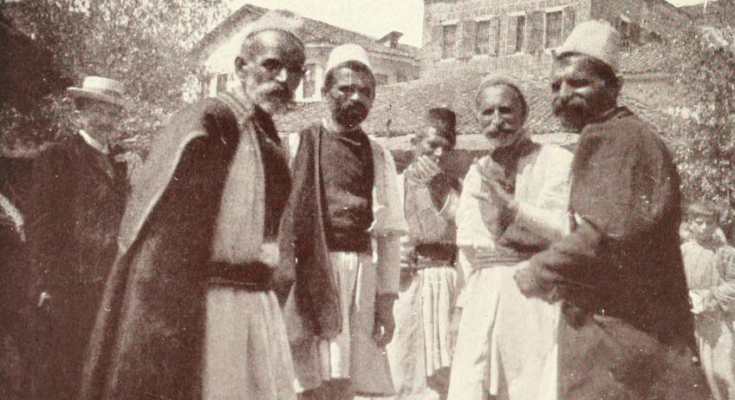
The Vlachs, a group of proud Greeks who speak a Romance language called “Vlachika,” or Aromanian, have their own distinct culture and traditions within Greece.
Members of this group, which now numbers around 250,000 individuals, can be found in many countries in the Balkans, including Greece, North Macedonia, Serbia, Albania, Bulgaria, and Romania. There is also a substantial population in North America as well.
Most of the Vlachs in Greece today live in the northern part of the country, particularly in and around the Pindus Mountain range. The hub of the Vlach people in Greece is the town of Metsovo, which is the center of their culture in the country.
In Greece, as in many other countries in which the Vlachs live, the younger generations have fully assimilated and many no longer speak the language and have lost their traditions.
Over time, the term “Vlach” in Greece has taken on unfortunate derogatory connotations and has also come to describe shepherds and “country people” in general.
Although the term is seen as negative, the Vlachs traditionally are pastoralists and shepherds who historically moved from the highlands in the summer to the lowlands in the winter for their animals to graze.
The history of the Vlachs in Greece
The Vlachs were first identified as a separate group way back in the 11th century by Byzantine Greek historian George Kedrenos.
Although the origins of this group are unclear, some believe they descend from the ancient peoples known as the Dacians. Others argue their roots can be traced back to Thraco-Romans or that they may even be the descendants of Romanized Illyrians.
Most Vlachs and scholars in Greece alike argue that the group is simply comprised of ethnic Greeks who adopted the language of the Romans.
What is clear is that the language of the Vlachs, Aromanian, has links to the vulgate Latin spoken throughout the Balkans during the Roman period. Although it has loan words from Greek, Turkish, and a number of Slavic languages, its roots are fully in Latin.
Under the Ottomans, the Vlachs were considered Greeks, or “Rum,” since they were Orthodox Christians. As Greek was the lingua franca of the Balkans at the time, particularly in matters of trade and education, many Vlachs spoke Greek and became more Hellenized, choosing to settle in villages and towns rather than continue their migratory, pastoral lifestyle.
It was only in the 19th century that the group began to be distinguished from other Christians in the Balkans. As the Ottoman Empire began to crumble, defined nation-states began to form, and the Vlachs were trapped between various countries. The reason that the Vlachs are dispersed throughout many Balkan countries is due to this migration.
Members of the ethnic group historically supported Greek political causes during the Ottoman Empire, and they even played an integral role in the Greek War of Independence, much like the Arvanites, another distinct group in Greece.
After the formation of the Greek state in the early 19th century, Vlach groups in the country split into two factions, namely those that more closely identified with Romania and others who were linked to Greece. These factions died out over time, however, and now Vlachs see themselves as Greeks.
As they are also Orthodox Christians, the main distinguishing feature of the Vlachs now is their language, which resembles Romanian (which itself resembles Latin). Their language is now under threat, however, as it has no standardized alphabet; many of the younger generations find no use for it and do not speak it.
There are currently around three hundred groups dedicated to preserving the Vlach culture and language in Greece. Activists hope to keep the language alive, particularly among younger generations.



